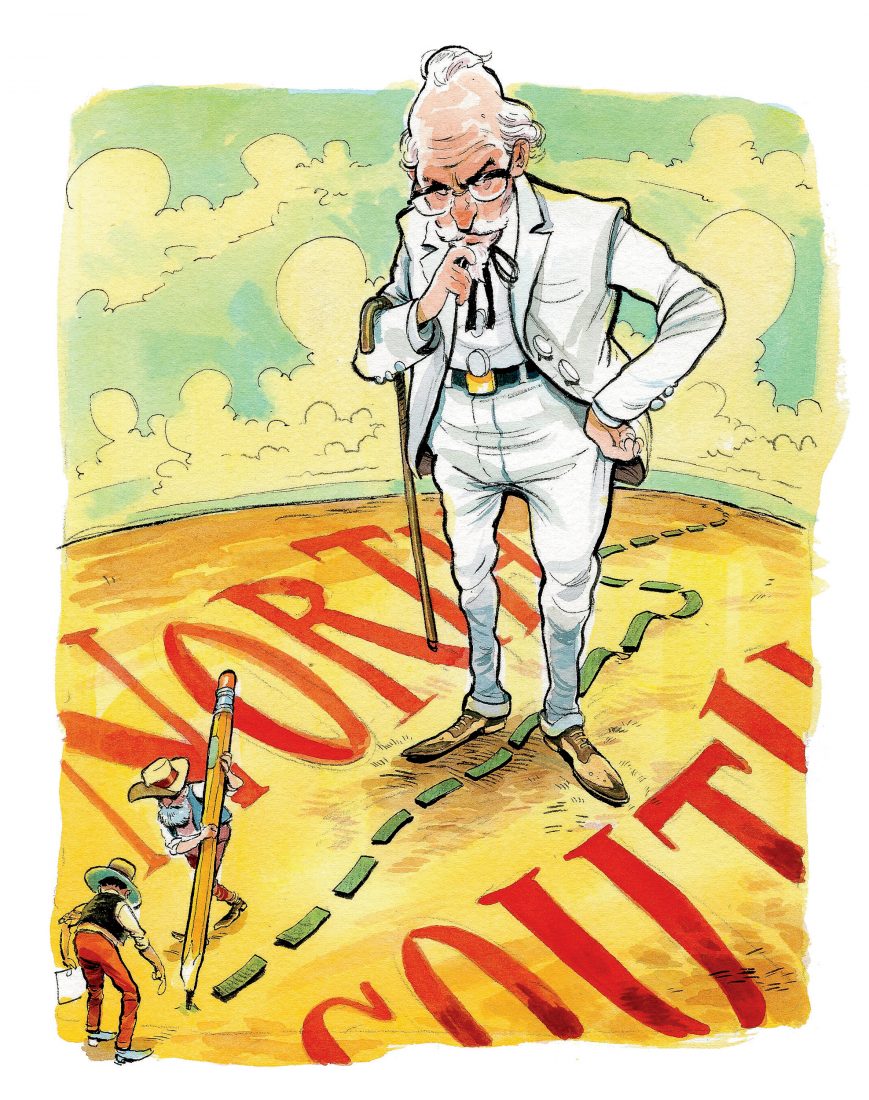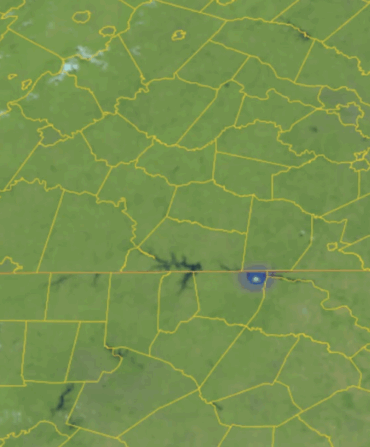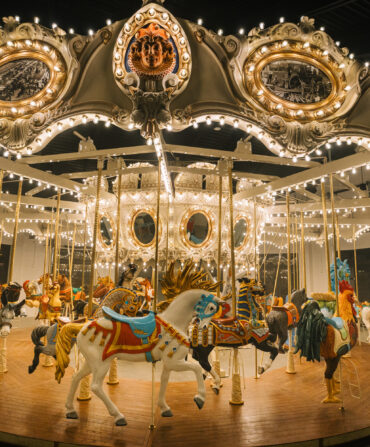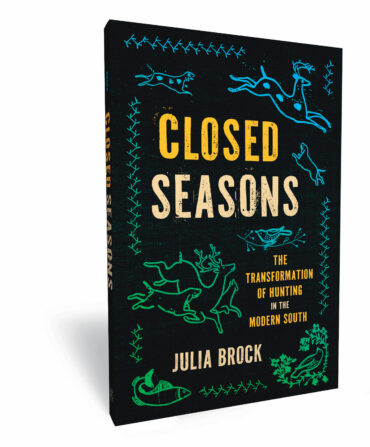Q. The Derby is coming up, so as we sit around handicapping the field it occurs to us to ask: Can Kentucky truly be classified as Southern?
At the risk of offending millions on both sides of the Mason-Dixon Line, which may be the larger editorial purpose of this column, the historical answer to your question is, sadly, that Kentucky probably doesn’t belong in the South. Very little in Kentucky is “like” the South—it’s not really hot enough, or wet enough, or busted-up enough, or frankly crazy enough to be truly Southern. Far too much of the state is far too well groomed and reasonable. Then there’s that unmistakable, rootless, Yankee-ish Rust Belt feel you get as you barrel up I-71 and hit the hills just south of Cincinnati. You think: This ain’t Alabama anymore. Did I just cross the Ohio River without knowing it?
But as Einstein noted in the general theory of relativity, in a universe as chaotic as ours, there is a longer, more relative answer that better approximates the truth. Kentucky is a Southern state. The peculiar math of the equation works like this: Kentucky is a bulwark, a fort at the edge of the territory, defending us from the vast, mad Coen brothers film set of Ohio, Indiana, Illinois, and the rest of the Midwest.
At the heart of Kentucky’s last-bastion-of-the-South function stand two endeavors central to the region’s identity, namely, making whiskey and breeding horses. Looking south to north on the map, these two unimpeachably Southern arts start in the limestone hill ranges of central Tennessee—around the Jack Daniel’s distillery, in Lynchburg, and the Tennessee Walking Horse arena in Shelbyville. Horses and whiskey—they run like a river until they reach full flower in the country around Lexington. This determines the posture of the state. It means that, in spirit, Kentucky faces south, toward something like home.
Q. Is there any sort of well-mannered way for a host to call time on a dinner party?
No. Even slight movements by a host in this direction threaten the delicate bonhomie of the assembled. Bad hosts rush themselves, and you. Under their diktat, you are not so much assembled to be assembled as you are assembled to be crossed off a list of obligations and dismissed. At a recent dinner, my hostess got up and started vacuuming during dessert. To be fair, it was a handheld, not the big thing, but the act metaphorically sucked our party souls into the little machine with whatever crumbs she was after in the corners.
That said, there’s one rule, and it’s fraught: The guest determines when the party’s over.
This is the part of the social equation in which bad guests notoriously tend to shine. Paris went over to Menelaus’s house and stole the man’s wife—a disastrous guest, especially for Achilles, Hector, Ajax, Priam, and the many Greek and Trojan battalions who met their demise resolving the fact that Paris didn’t know when to leave, or with whom.
There’s no greater gift for a host than a guest aware of his or her responsibility to enjoy the event fully, and to leave at the right time. What does that mean? A dinner party is a wind-borne vessel, its propulsion coming in the form of conversation, so that, as the wind begins to pull off by a few knots after dinner, you pick your graceful moment to plead “school night,” to compliment the chef, and to ease on down the road.
Q. Is there, ever, an excuse to mount a horse from its right side?
Okay, let’s assume that you knew there was a suitcase-size thermonuclear device being detonated by some local miscreants twenty minutes up the road from your pasture, and, further, that you knew you could save yourself and your horse by galloping him hell-bent for leather out of there. But you notice you’re on the wrong side of the horse. Begging the animal’s pardon, and God’s, for the eighth deadly sin of mounting him from the right, then yes, there is that one excuse.








